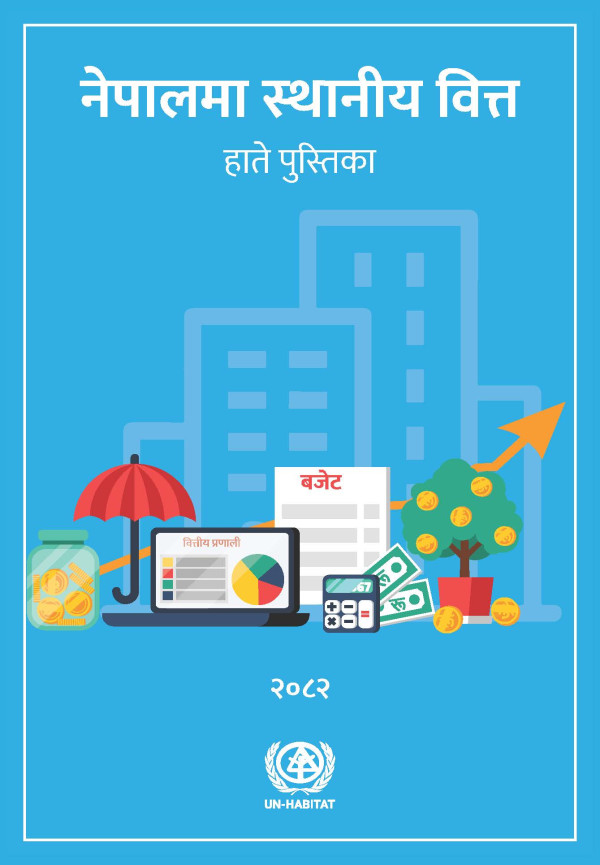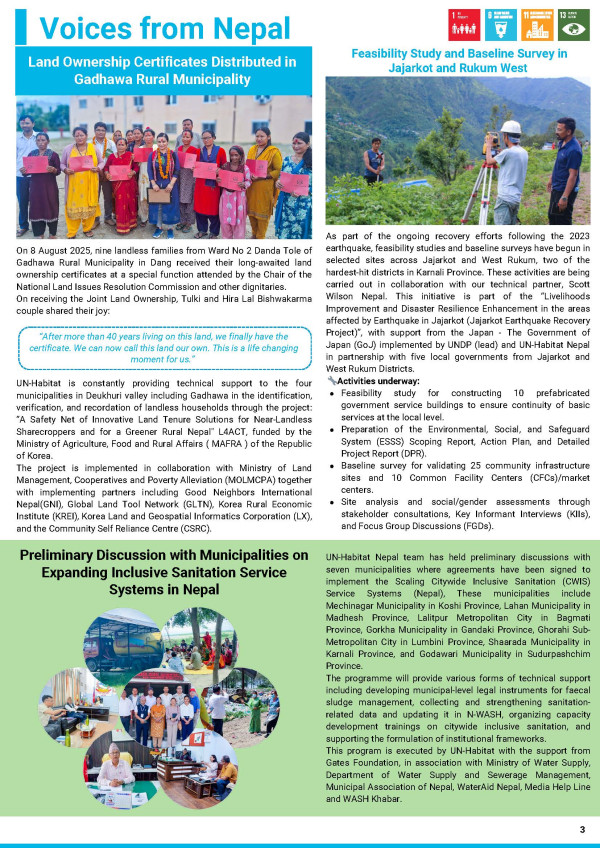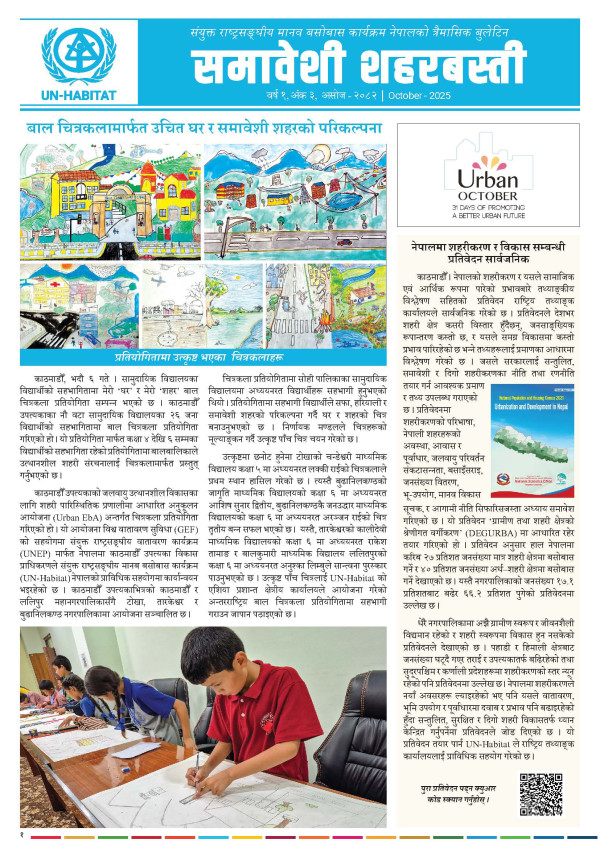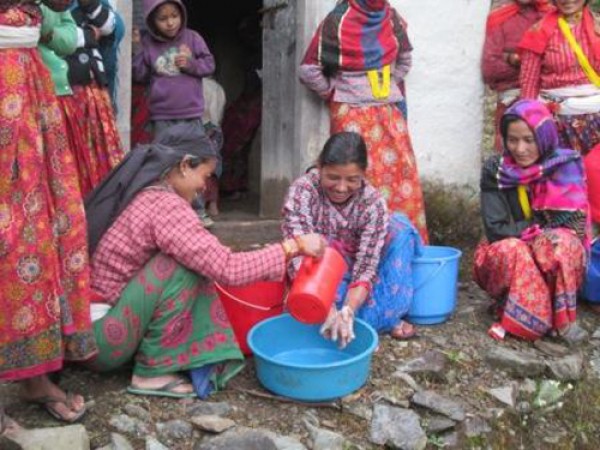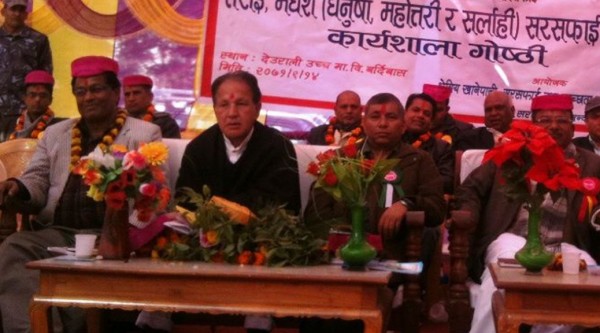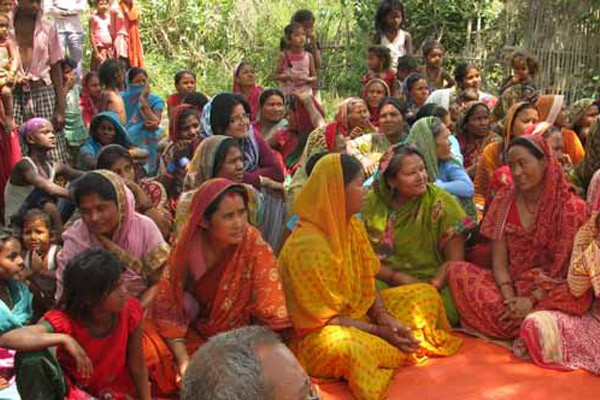Nepal’s Water Supply Minister commits to sanitation, hygiene and menstrual health for all
KATHMANDU, Nepal – The Government of Nepal (GoN), Ministry
for Water Supply played a crucial role in the country reaching “Open Defecation
Free (ODF)” status in 2019. In this exclusive interview with WSSCC, Honorable
Minister Bina Magar speaks about the need for Nepal to invest in several water,
sanitation and hygiene programmes to ensure safe water, sanitation, hygiene and
menstrual health for all and how she sees the Sanitation and Hygiene Fund
supporting Nepal in achieving SDG 6.2.
WSSCC: What are the Ministry’s plans to achieve SDG 6.2 - equal
access to sanitation and hygiene for all?
Minister: There is no doubt that Nepal has achieved a
milestone in the sanitation and hygiene sector with the ODF declaration. Nepal
has also declared its intention to achieve total sanitation. Currently, we are
drafting a Water, Sanitation and Hygiene (WASH) Plan with local governments.
This will help us identify the financial and technical resource gaps for the
implementation of sanitation and hygiene programmes and will also help determine
ways to fill those gaps. Besides that, the Ministry has drafted the Water
Supply and Sanitation Act to address any policy-related glitches. The act is in
the Parliament and will been endorsed soon.
WSSCC: What kinds of programmes do you think Nepal needs to
achieve SDG 6.2?
Minister: The Constitution of Nepal states that ‘every
citizen has the right to access clean drinking water and sanitation’ and sanitation
is defined as a fundamental right. The Department of Water Supply and Sewerage
Management (DWSSM), which is part of this Ministry, has launched various
programmes on water and sanitation through its project offices in all 77
districts. It also has a plan to start various programmes in close coordination
with the provincial and local governments. The Ministry has also prioritized
menstrual health and hygiene by developing the National Policy on Dignified
Menstruation. The final draft of the policy will be made public after
incorporating suggestions from concerned stakeholders.
There are, however, various challenges to the timely and
effective implementation of these programmes. The Ministry is facing a sectoral
financial gap and a lack of sector-wise expertise in order to implement these
programs. We see the Sanitation and Hygiene Fund as playing a critical role in
helping Nepal to address these gaps.
WSSCC: Though sanitation and hygiene is a human rights
issue, it has not been a priority in terms of budgeting and planning. Why do
you think is the case?
Minister: Sanitation and hygiene have become a priority
since Nepal moved to a federal structure with three tiers of government. All
three tiers have prioritized sanitation and hygiene and initiated WASH plans.
WSSCC: What is the allocation of budget, plans and policies
to address these challenges?
Minister: The 15th National Plan of Action has vowed to
ensure quality services and accessibility of safe and clean drinking water to
all and provide sanitation services deemed necessary. Based on this commitment,
the Nepal Water, Sanitation and Hygiene Sector Development Plan which is
currently being developed includes an analysis of the challenges, potential
solutions, and the financial and technical aspects of this sector. The Ministry
has developed national programmes on proper management of wastewater, faecal
sludge management, etc. The Ministry is also exploring the possibility of
attracting private sector investment in wastewater and faecal sludge
management.
WSSCC: What do you think can be done to raise the profile of
sanitation and hygiene at the policy level?
Minister: Sanitation and hygiene involves many stakeholders,
and there is a need for a common understanding and effective collaboration and
coordination among all these stakeholders. We need to increase capacity and
sector expertise as well as develop the institutional framework.
WSSCC: Only approximately 15 percent of women of
reproductive age have access to sanitary pads in Nepal. What do you think the
government can do to increase the accessibility and affordability of sanitary
pads in Nepal?
Minister: The Ministry is concerned about easy accessibility
of sanitary pads, especially for women living in remote areas. We will
coordinate with stakeholders and generate resources to ensure easy
accessibility of sanitary pads to all women for dignified menstruation.
The National Policy for Dignified Menstruation has already
been drafted under the leadership of MoWS. Similarly, the School Sector Development
Plan (2016-2023) has also ensured privacy, menstruation health and sanitation
under the health and nutrition heading. The accessibility of sanitary pads is
related to poverty as well. Hence, it is very important to provide
skill-oriented training sessions that will enhance the income of women living in
rural areas. Even though the government has introduced various projects and
programmes related to menstrual health and hygiene, these initiatives have not
been sustainable.
WSSCC: Now that Nepal has been declared an ODF nation, what
is needed to ensure the ustainability of this status?
Minister: Nepal was declared ODF on 30 September 2019. But we
still have many challenges to face in order to maintain our ODF status. There
has to be proper coordination, collaboration and understanding between &
among all three tiers of governments to enable comprehensive development of
sanitation and hygiene sector planning that will lead us to total sanitation.
Following the successful declaration of ODF, the government launched
its total sanitation campaign as a social movement after endorsing the
Sanitation and Hygiene Master Plan 2011. But achieving SDG 6.2 will not be that
simple and easy. The major challenges are infrastructure, a lack of sector
expertise, financial management, the sustainability of services and
coordination between the three tiers of the government, and we feel that this is
where the Sanitation and Hygiene Fund can help us address those challenges.



